Select a police force below
Helping to make roads safer with
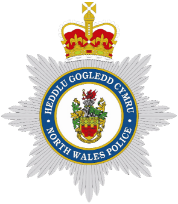
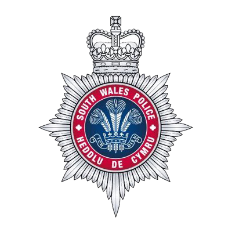
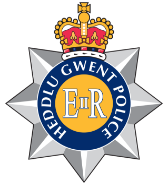
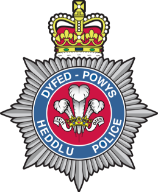
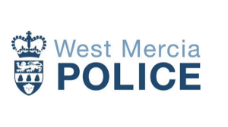
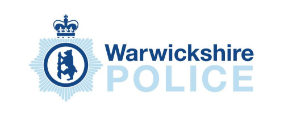
National Dash Cam Safety Portal Privacy Policy & Terms of Use
- You may use the NDSP to upload footage from any dash cam, action camera, mobile phone or any other type of camera from any manufacturer.
- Please note Section 10 (Uploading content to our site) and Section 11 (Rights you licence) in our Website Terms of Use do NOT apply to this tool. Nextbase do not have access to see any videos uploaded or any of the personal information provided when submitting an incident.
- Videos and Witness Statements uploaded and creating this tool are only viewable by the Police force to which they are submitted.
- Please also see Egress’ Privacy Policy which is linked to at the bottom of the witness statement form.
- This portal is provided free of charge by Nextbase to all users and The Police.
“We’re sorry but our police portal is currently only available to users in the UK. Most police forces will still accept Dash Cam footage if you contact them directly”
Frequently Asked Questions
The National Dash Cam Safety Portal (NDSP) is a response to the ever-increasing submissions of video and photographic evidence from members of the public in relation to witnessed driving offences. It has been setup with the aim of reducing road accidents and making the UK’s roads safer.
You can submit any type of footage, whether it is filmed on a Dash Cam, mobile phone or any other device – regardless of where it was filmed. In and out of a car, from a building’s window, as long as it relates to the case that you are submitting, it is good to be submitted.
It will not be possible to enhance if the original recording has failed to capture the number.
No. All that is required is a copy of the original file in unedited, uncompressed format.
Please remove the footage from social media. Crown Prosecution Service advice is that your footage should not be in the public domain as this may adversely affect subsequent proceedings.
Yes, as part of the Criminal Justice process, and in order to allow the Police to deal with the offender in an appropriate manner, you must provide a statement. Conveniently this can be done online by completing a brief pro forma.
The police will impartially review the footage which you submit and deal appropriately with all offences which may be disclosed. For example, if you were exceeding the speed limit in order to catch up with an offending driver and then proceeded to film them with your mobile phone whilst driving, the police would consider taking proceedings against you. There is no legal exemption allowing you to commit a driving offence in order to record evidence of offending by another driver.
Evidence will be accepted in the form of still photographs or video footage; however, the submission must fully show the incident. For example a still photograph in conjunction with your statement may be acceptable to prove an offence of using a mobile phone but video footage must be provided in relation to traffic light offences.
It will not be possible to deal with your report without a statement from you. Please remember that early indications show that only 1-2% of reports which the police act upon actually result in a court trial.
It’s important that you submit your footage and statement as soon as possible. Most road traffic offences generally have a 6 months time limit for prosecution. Furthermore, some offences place a requirement on the police (only if it is possible to do so) to notify the driver or registered keeper of the offence within 14 days.
The footage which you submit along with your statement will be stored securely on a cloud server.
The police have always received complaints from members of the public about dangerous and anti-social driving. The NDSP has simply brought the process of reporting these incidents into the 21st century.
Whilst the police endeavour to ensure that our roads are safe for all to use, there will always be occasions when dangerous driving occurs without a police officer being present. This process simply facilitates the reporting of these incidents, should a witness choose to do so.
The Police will deal with all matters of careless/riding/cycling as best they can. It’s vital to remember that the vulnerable road users such as pedestrians, cyclists, motorcyclists and horse riders are at much greater risk of serious injury and death than those in cars. Our priority should always be to protect those most vulnerable.
Engage with us. We seek only one thing – that is, if we can, to influence your future behaviour so that our roads are safer.
NDSP caters for a broad range of road incidents including dangerous driving, using a mobile phone, driving without due care and attention, careless driving, overtaking on solid white lines, not in proper control, traffic light contravention or any other road traffic offence provided it is clearly made out in the submitted media.
Incidents can be reported via the NDSP or directly to the Force where the incident occurred.
It will be your responsibility to ensure that the footage is securely saved in its original format and can be made available if required by the police. For example, you may choose to back up the file to your computer, hard drive, USB drive etc.
Only if the images clearly demonstrate the offence being committed. Dependent on the offence, the Police may require the video footage of the whole incident. They may also need to see more of your journey so that they can understand the context of what happened.
Early indications suggest that on average only 1 to 2% of all reported offences result in a trial actually being run in court. There are other disposal methods available such as a driver improvement course or the acceptance of a fixed penalty notice.
If however on the very rare occasion the offence which you report necessitates your attendance in court, then you will be fully supported through the process.
The footage and statement will be carefully reviewed by a police officer who will decide which, if any offences are made out, whilst taking regard of the incident as a whole. Subsequent decisions on disposal options will then be taken in accordance with CPS charging standards.
The options are, No Further Action, Driver Education Course, Fixed Penalty Notice, Summons to Court.
Ideally the date and time would be correct, but don’t forget that the video footage is used to support your written witness statement. If the time/date stamp in your video is incorrect, it is not an issue provided you refer to this in your statement.
For example: “The date and time stamp displayed in the video/photograph is incorrect. This incident happened at 3pm on Thursday 12th April 2018”
The offending driver will not be provided with your details. However on the rare occasion that the offence which you reported does go to trial then at this stage the offending driver will become aware of your name, but not your address or any other personal details.
If you have footage of any other types of offences it is suggested that you contact the Police via 101 or the Local Authority if appropriate (parking offences).
Your footage will be stored in accordance with legislative requirements dependent on nature of disposal.
Yes, provided that an offence has been committed, Cyclists are very vunerable on our roads.
Yes. It’s easy for people to engage and processes have been designed to run smoothly. There is only one desired outcome. That is making our roads safer.
The Police will not respond to every upload due to the high volume of submissions received, but rest assured it will be dealt with accordingly. If the case goes to court or more evidence is required, then you will be contacted for further details.